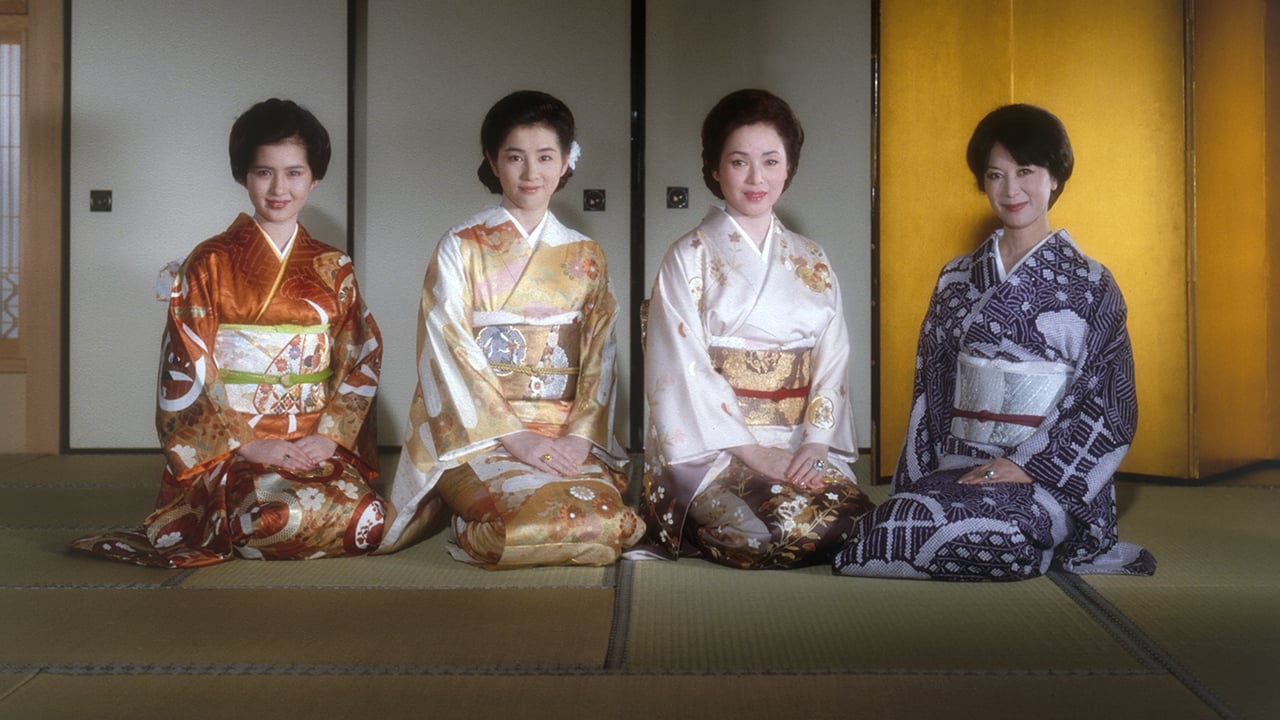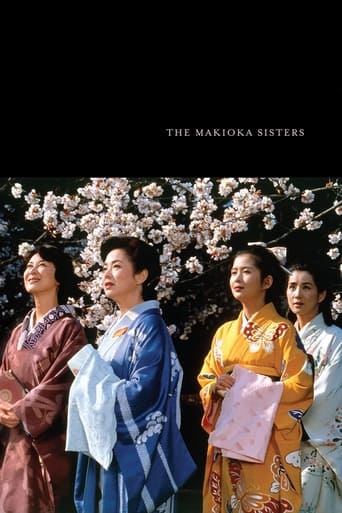

It's a mild crowd pleaser for people who are exhausted by blockbusters.
... View MoreThe plot isn't so bad, but the pace of storytelling is too slow which makes people bored. Certain moments are so obvious and unnecessary for the main plot. I would've fast-forwarded those moments if it was an online streaming. The ending looks like implying a sequel, not sure if this movie will get one
... View MoreThe movie turns out to be a little better than the average. Starting from a romantic formula often seen in the cinema, it ends in the most predictable (and somewhat bland) way.
... View MoreExcellent characters with emotional depth. My wife, daughter and granddaughter all enjoyed it...and me, too! Very good movie! You won't be disappointed.
... View MoreViewed on DVD. Subtitles = one (1) star. A pot boiler with sumptuous production values. Exterior location and interior sets look/are authentic. The kimonos are stunning. Acting, direction, and cinematography are close to (if not) first rate. Authentic Western Japan dialect (now and then). That's the good stuff. Now the rest. If you were native-born Japanese and lacked English language conversational skills (more and more a rarity today), imagine how, say, a BBC soap opera would come across based on subtitles? Without being able to catch and enjoy much in the way of acting nuances, subplots, etc., would it appear to be just plain tedious, repetitious, and boring? Probably. Also an apt description of this Criterion disc version: it's tedious, repetitious, and boring. The subtitles are vacuous and often incorrect. The disc cries out for extensive supplemental material on what the film is about, the culture it recreates, the author of the source material, backgrounds on the director and lead actresses, etc. If you lack Japanese conversational skills, work on your Japanese, and then re-visit the film in a few years. You might be amazed at how much it has "improved"! Except for the cheap synthesized music. WILLIAM FLANIGAN, PhD.
... View MoreWe saw this beautiful movie several years ago at a Pacific Film Archive showing. We had read the book and found the film followed it faithfully and was gorgeously photographed. We just wish we knew if and when it will ever be made available on DVD or videotape. It was a pleasure to see a film that depicts life in nearly modern Japan with realistic people and locations. We have seen so many "studied" and arty films or medieval Japan that this one has remained a favorite ever since. We were pleased when a beautiful copy of "The Leopard" was released last year and hope that something this classic and beautiful can be made available to viewers.
... View MoreThis is a gorgeous film to watch--you probably will never see a more beautiful view of Japan as you see of the wonderful cherry blossoms or Japanese Maples around Kyoto and Osaka. So, the cinematography is excellent. However, the story itself seemed awfully flat overall. The writing and acting was decent, but the film needed more energy, heart and a sense of humor for me to care more about the characters. Most of the characters would have surely benefited from a massive dose of this, as the way they were portrayed it was, at times, hard to for me to care about them or sustain my interest in the film. For example, the 3rd daughter (who was the one who repeatedly refused marriage proposals) was a bit of a cipher, as she didn't say very much and just used a lot of facial expressions instead of dialog. The youngest, though a little self-destructive, was probably the easiest to like or at least understand. And the two older sisters were very domineering but needed to be softened a little more--lest they seem too one-dimensional. A decent film, but that's all.
... View MoreOne should first read The Makioka Sisters by Junichiro Tanizaki to better understand this film. It is a very great novel about the life of four middle-class sisters in Osaka, Japan in the 1930's. The book describes in great detail the many subtleties of life in Japan which a Westerner can miss understanding in the film. The film rather closely follows the book and is very beautifully photographed.
... View More